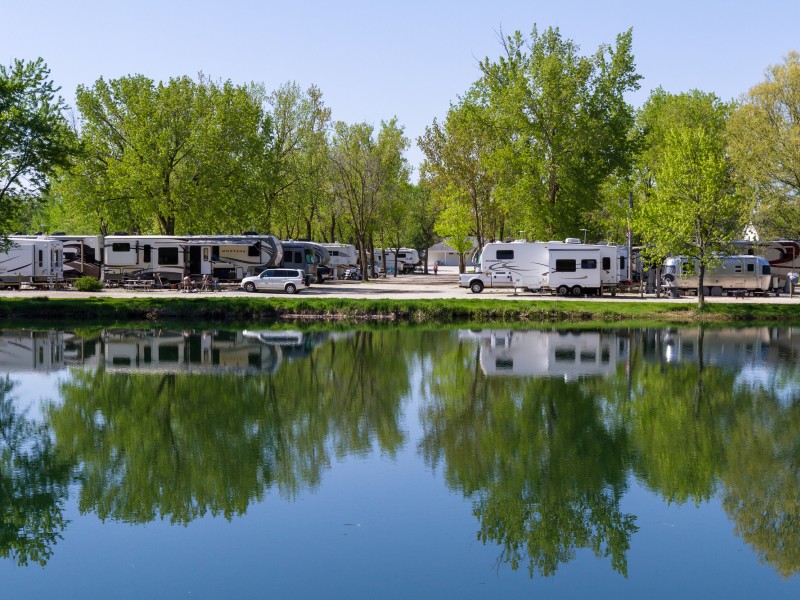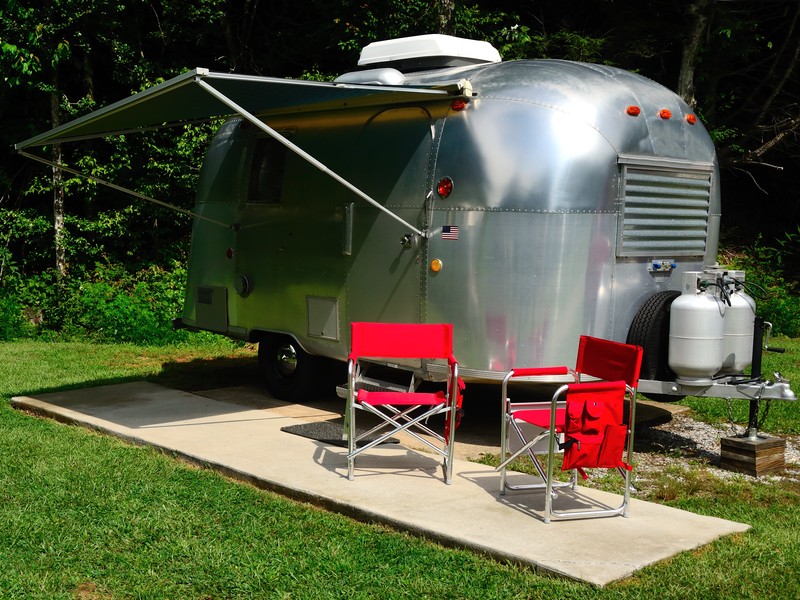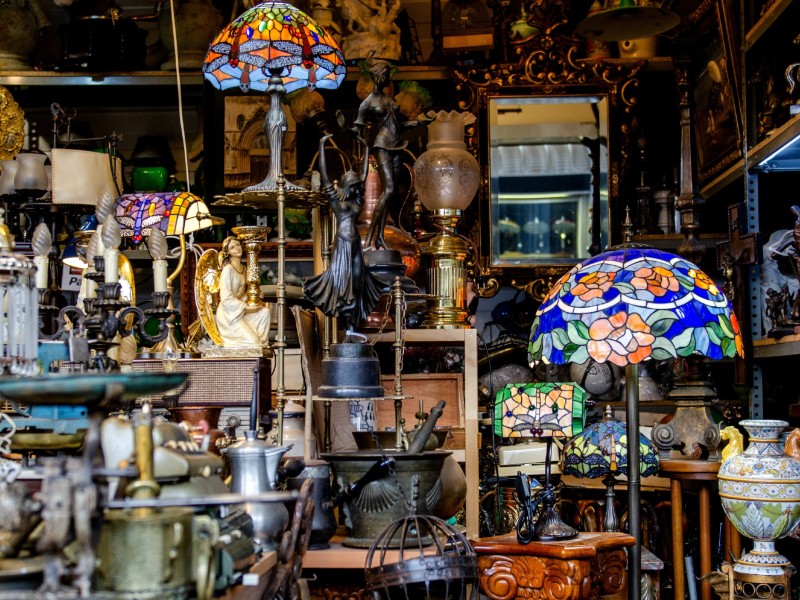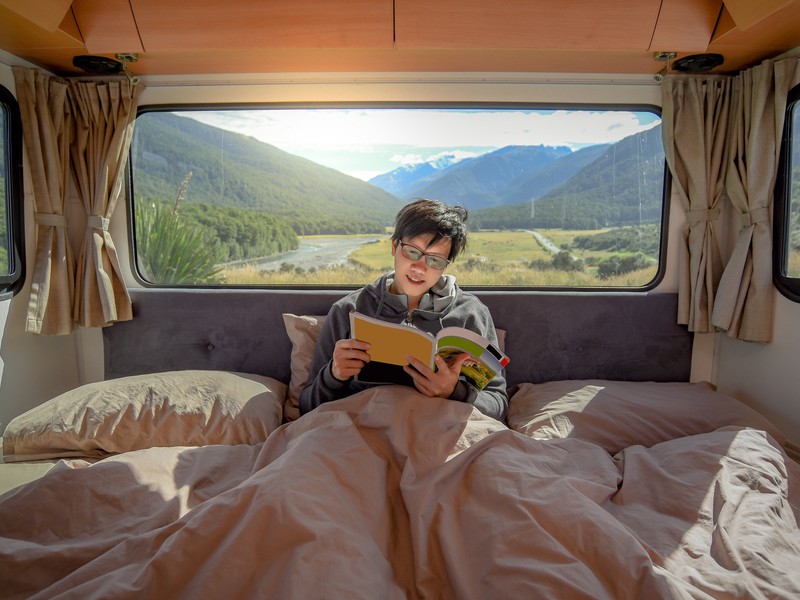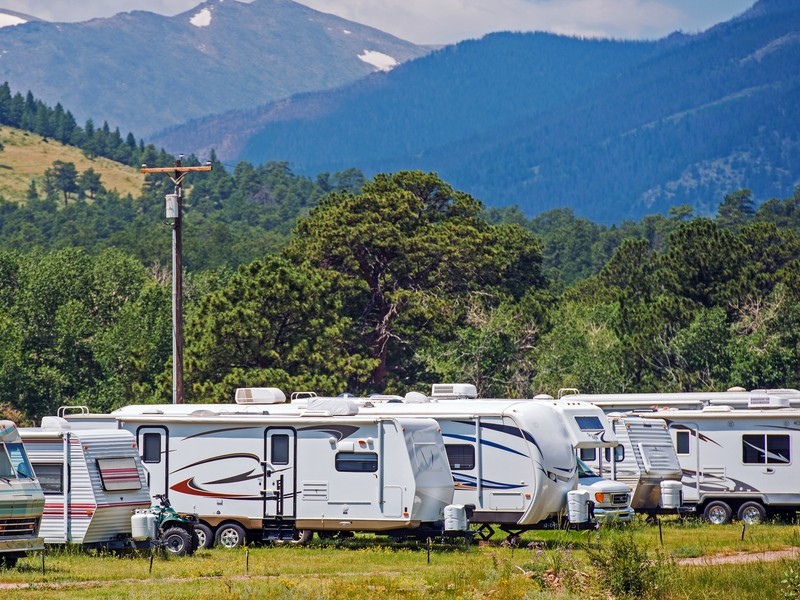If you’re like many, the thought of roughing it can be exciting. You want to take that next adventure, so you plan a trip, and it goes well.
You’re pleased with the campgrounds and the site, as well as all of the rules. The place looked serene and calm, the people were all polite, and you had plenty of space to yourself.
With all that fresh in your mind again, you decide to plan another camping trip. You think the best thing you can do is go to the same place as before, but that might be a mistake.
Instead of going to the same place again and again, you may not want to get attached to a particular camping location or a particular site at the camping location.
Beginner’s Luck
While you had an amazing experience that first time, it doesn’t mean you’re going to have a similar experience the second time around. In fact, you’re less likely to enjoy yourself that second time at the same location because of the feeling of ‘it’s been done before.’
The point of camping, for most people, is to try something new and different. You can’t do that well if you’ve already been to that location.
Even so, you may find that the area is clogged with too many people, the sights aren’t as appealing, or the facilities aren’t clean or sanitary. Instead of having a bad experience that may turn you off of camping altogether, you can try something else to see how well it compares.
Create More Adventure
For most people, camping is a way to have an adventure they aren’t likely to have at home. You can’t really experience the wilderness or the camaraderie of camping while lying under the stars in your backyard.
You go out to a campsite to get the full effect of the camping experience, which includes everything the campgrounds have to offer.
In most cases, the campgrounds are all you get, plus some restroom facilities. However, some camping sites provide a few modern/luxury things, such as a large communal firepit, fresh water stations, and the like.
Regardless of whether you want to rough it in the full sense of the term or want the experience while still getting flushing toilets and running water, the goal is to try a variety of locations so that you can get the adventure and thrill of camping.
You can also try a variety of locations that offer a variety of camping styles, which gives you even more ways to newly experience the camping lifestyle. Because of the multiple locations to choose from, there’s no reason to get attached or hooked to a certain campground.
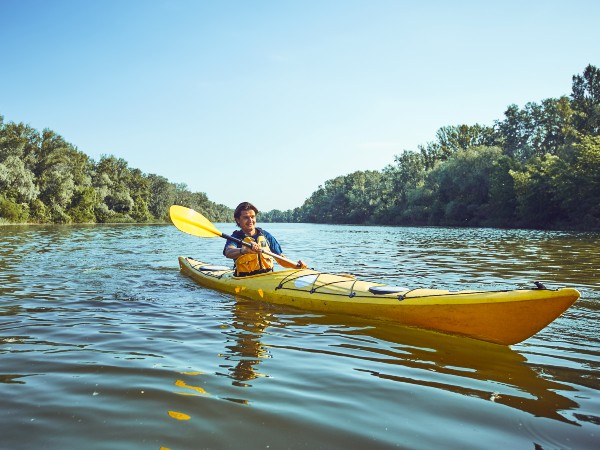
Became to Popular
Many times, campers get upset when they find a little-known treasure of a campsite and come back the next year or the next time to find it overpopulated.
You may have wanted a private area for you and your friends/family, but you find that your little slice of heaven has been overrun with families or bunches of friends who might be rowdy or otherwise annoying.
Became too Unpopular
On the flip side, going to the same campground over and over can be a drag if you start to notice that the number of campers drops each year or each time you go. Many times, campsites become unpopular because of a variety of reasons.
In most cases, it’s because the campers you had nearby were staying the night on their way to different adventures.
Sometimes, the quality of the site goes downhill, or people decide they don’t want to rough it. As a result, they don’t take as good care of it and some things get out of hand. A perfect example is poison ivy!
Regardless of your reason, you go there multiple times hoping to enjoy the camaraderie only to realize that you can’t visit with others on your trip because no one else is there.
Of course, this can be a caveat or a benefit depending on how you look at it. If your goal is to stay away from others and have a private campout with your family or friends, you may enjoy the allure of an unpopular campsite.
Just make sure it is safe to stay there and ensure that you don’t see any animal tracks or droppings nearby.
To Far/Close to Travel
Sometimes, you’re going to want to stay close to home. Finding a campsite that is near to your house can be highly beneficial as you can cut out for a weekend away or even a night in the tent.
However, the same issue arises over time; you get tired of the same place and don’t have any mystery or excitement when going there. If you get to attached to the campground, then you won’t have any reasons to experience or try new things!
You also shouldn’t get attached to a particular campground because it might be too far away. You may have loved that camping trip you took a few states away, but you may not have the funds to go there often.
If you choose a location closer to your home, you’re more likely to get more use out of your tents, sleeping bags, and other camping gear.
Consider Public/Private
Many times, people choose public campgrounds because that’s all they’re familiar with, which can be an excellent choice if you like the idea of having neighbor campers or are new to the camping scene.
You’ll feel more comfortable and safer because you’re likely to get help in the form of park rangers and other attendants.
Along with such, public options can also allow for roughing it. These sites are likely free or very low cost, which can help you save money on your trip. However, they are less likely to have amenities.
Private campgrounds are also different and exciting. They usually have luxury amenities, such as:
• Pools
• Fitness centers
• Courts for volleyball/tennis
• Saunas
• Tours
It might be nice to mix and match throughout the season; maybe a few times a month you can use a public campsite, which can be less expensive, and a few times a season you can choose something more luxurious.
That way, you can have something ‘normal’ while also getting something more like a vacation. Usually, hotels have pools and other amenities, and some private campgrounds offer those things and more.
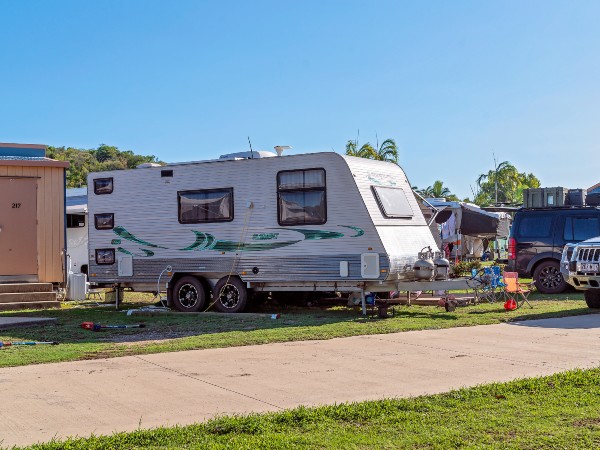
Consider Taking Your RV
There may be times when you decide you want to take your RV on your camping trip. It’s a way to have all the comforts of home and your own private restroom (if you have the right hookups).
It is important to understand that some campsites are only for tents.
They don’t have the space to accommodate RV sizes. Likewise, some campsites are only for RVs; they don’t want to risk having tents that could get run over or knocked down because of the RV.
Some campsites offer both options.
Regardless, it can be different and exciting to consider RV camping if you’ve never done it before and you own an RV.
You can also rent an RV for the duration of your camping trip, which makes it a little more luxurious and opens up new opportunities for you and your guests.
Get Multiple Sites under Your Belt
Whether you like roughing it, going to private campgrounds, or don’t have any experience at all with camping, you’re probably going to want to see and use a variety of sites.
If you’re like most people, you can’t get away from obligations that often to go camping, so you need to make the most out of every experience. Going to the same place over and over gets boring and doesn’t give you that sense of adventure and exploration.
Of course, it can be nice to go to the same campground a few times throughout the season, but you want to visit as many camping sites as you can so that you’re more prepared for the next year.
Explore the Great Outdoors with Us!
Types of Campgrounds to Consider
Now that you understand the reasoning for not getting attached to a particular campsite, it’s important to understand the different campgrounds that are out there.
That way, you can determine which one is best for you and your skill level. It also ensures that you and your family enjoy the adventure and want to do it again and again.
Sometimes, there can be a crossover between the various campgrounds. For example, many National Park camping sites include rough camping but might also have similar amenities to the state parks.
It’s also important to check on the prices, availability, rules, and amenities available when looking at campground sites.
Rough Camping
Rough Campgrounds are those that give people the ability to camp inexpensively. Usually, the campground is a cleared-off space attached to the woods near a water source, which gives you reasons to pitch a tent.
They rarely have amenities included, though some areas might. Along with such, they are usually state-funded, which means the state/county has to put its own money back into the campsite.
If it doesn’t do much for the site, it can easily get overrun with vegetation.
Here, it’s likely that you’re not going to have a lot of convenience items. You can have whatever you bring with you.
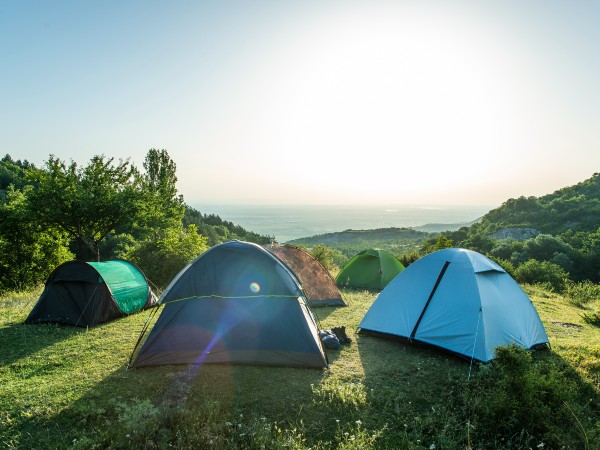
You’re likely to get a picnic table and a fire ring. You may also have an outhouse nearby that is used by all or some of the campers.
Sometimes, these locations provide a hand pump to get water. However, it’s important to note that you may have none of these amenities at all.
The best part about these campsites is that they are very inexpensive and some don’t charge you at all to stay there. Others may charge $10 or so dollars.
However, many rough camping spots do require you to have a camping permit. This is for your safety; if you get injured or lost, the DNR or camp owners can find you.
The benefits of the rough campsite are plentiful. For one, there are usually fewer rules to abide by and, for another, you can choose how the campsite is arranged, allowing you to get closer to nature.
State Parks
Every state in America has a state park, and many of them have campgrounds. Depending on the area and state you plan to camp in, you can find many terrains available, making it easy to choose something suitable for your skill level and preferences.
You can find lakes, woods, mountains, ocean fronts and sometimes a combination of many features.
Most parks have options without and with electricity and a variety of spaces for RV and tent camping. Along with such, state parks have park rangers who can help you.
This is suitable for families that don’t have a lot of experience because it helps them feel secure and safe.
You may also find parks that have camping cabins, so if you don’t have a camper or tent, you might still be able to stay there.
Many small state parks don’t have a lot of amenities, but most of them have the basic necessities. You’re likely to find a picnic table and fire ring, and you might even have a concrete pad so that you can pitch your tent or park your RV.
These locations usually have relatively clean facilities for showers and bathrooms throughout the campground. They may have a freshwater station and a garbage location, as well.
The pricing can vary from campground to campground and state to state. Those without amenities are likely to charge $10.00 or less per night while fully-loaded campsites might charge up to $50 per night.
You’re also likely to find a variety of activities available, such as hiking/bike trails, sandpits for horseshoes and volleyball, and more. If you find a place near a lake or body of water, you might also be able to fish, swim, and boat.
The benefits of camping in a State Park are plentiful, as well. There are many open areas where you can run, play a sport, and more.
Along with such, you can bring as much equipment for play and daily needs as long as you have room in your vehicle.
Because there are so many options for state parks, reasons vary why you never want to get attached to any campground inside one. Why choose only one State park when they all have multiple/different benefits? If you pick just one then you’re throwing the others out the window.
Private Campgrounds
A private campground is one that’s owned by a company, part of a franchise (think KOA) or owned by an individual. It usually has tent campsites, RV campsites, and camping cabins.
Depending on where it is and who owns it, the private campground can have a variety of amenities, including:
• Fire rings
• Running water (for showers and toilets)
• Picnic tables
• Swimming facilities
• Free movies
• Playgrounds
• Other free activities unique to that area
Many times, private campgrounds are the most expensive options and that’s a solid reason not to get attached to it! Some of them require you to have a membership to the facility while others can run upwards of $75 a night.
Of course, private campgrounds are usually located near a town, so you can get a bite to eat, grab some groceries (such as chocolate bars, graham crackers, and marshmallows), or do some sightseeing.
You’re also likely to feel safer here because there are plenty of people.
National Parks
While similar to state parks, national parks can give you one of the best experiences and are found throughout the United States. You can have many different camping experiences and camp on various terrains, as well. The scenery itself can give you multiple reasons to get attached to the campground.
Many times, you can choose between primitive camping (similar to rough camping) or traditional setups.
Primitive camping is usually a good hike away from the traditional setup, but you can experience more nature. You may find hundreds of miles for campgrounds and exploration here.
Many times, people choose a national park for the park experience and not the camping, so you’re likely to find the basics, such as running water, fire rings, picnic tables, and the like.
You may, however, also get electricity and laundry facilities.
Regardless of whether you choose to camp in an RV or tent, you’re likely to get a night for under $20, and sometimes it might be a lot less.
Along with such, you’ll find a variety of ‘nature’ activities, including fishing, swimming, hiking, kayaking/canoeing, and more.
Plus, some of these locations are likely to have information about the location and why it is famous or well-known.
RV Campsite Setup and Decorating (Video)
Related Questions
- What are some of the potential downsides of returning to the same campground repeatedly?
Returning to the same campground repeatedly may limit your exposure to new environments, experiences, and challenges that different locations can offer.
Additionally, overuse of a single campground can contribute to environmental degradation, potentially damaging the natural habitat and reducing its appeal over time.
- How can exploring different campgrounds enhance the camping experience?
Exploring different campgrounds can enhance the camping experience by providing a variety of natural settings, each with its unique flora, fauna, and landscapes, thereby enriching the camper’s connection with nature.
Additionally, each campground offers different amenities, activities, and challenges, promoting new learning experiences, skills development, and a sense of adventure.
- What factors might cause a once-popular campground to become unpopular over time?
A once-popular campground may become unpopular over time due to factors such as environmental degradation, like littering or overuse leading to damaged flora and fauna, and lack of maintenance, resulting in deteriorating facilities or amenities.
Additionally, changes in societal trends, such as shifts in outdoor recreation preferences, increased popularity of other nearby locations, or negative online reviews and word-of-mouth can also contribute to the decline in popularity.
- How can the distance of a campground from home impact the camping experience?
The distance of a campground from home can significantly impact the camping experience in terms of travel time, cost, and accessibility.
A nearby campground allows for shorter travel times and lower costs, making it more convenient, while a distant campground may offer a more immersive nature experience but requires more planning and resources.
- What are the differences between public and private campgrounds, and how might these differences affect the camping experience?
Public campgrounds, often managed by government entities, typically offer amenities like picnic tables, fire pits, restrooms, and established campsites, but can be crowded and have strict rules regarding noise, pets, and campfires.
On the other hand, private campgrounds, owned by individuals or businesses, might offer more luxurious amenities such as swimming pools, Wi-Fi, and on-site stores, but they can be more expensive and less rustic, potentially altering the traditional camping experience.
"Of all the paths you take in life, make sure a few of them are dirt."
-- John Muir
